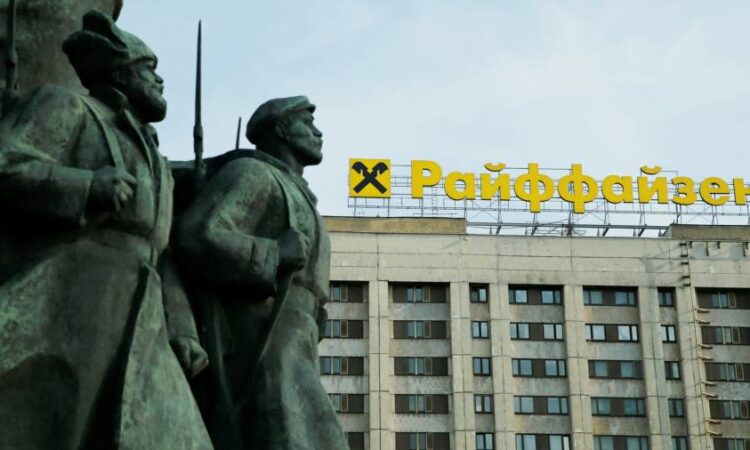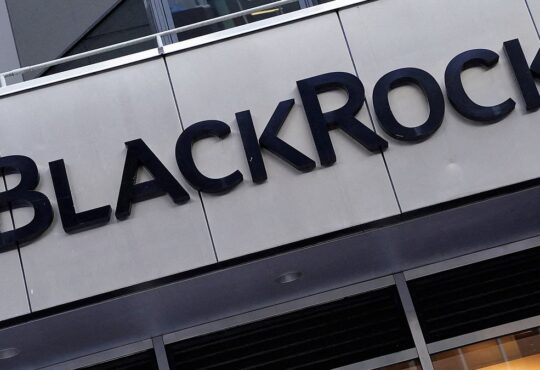
Raiffeisen Bank is seeking to exchange €400mn worth of profits trapped in Russia against Sberbank’s frozen cash in Europe, in a plan underlining the Austrian lender’s efforts to reduce its exposure to the Russian market.
The swap deal, presented at a Raiffeisen board meeting last week, involves Sberbank receiving roubles from Raiffeisen’s Russian subsidiary, which are barred from exiting the country because of capital controls imposed by the Kremlin, according to three people directly involved in the discussions.
As part of the so-called “project Red Bird”, Raiffeisen would in turn take over a sanctioned legacy cash pile held by Sberbank’s European arm.
“Consider this the financial equivalent of cold war prisoner exchange,” one of the people involved in structuring the deal said.
The creative solution is likely to raise eyebrows among western politicians and policymakers because it would mean allowing Kremlin-owned Sberbank, Russia’s largest lender, to effectively get some of its frozen European cash back. Any deal would require the approval of regulators in Washington, Brussels and Moscow.
A person close to Sberbank cautioned that finalising the deal would be difficult because of the complexities in obtaining permission from the US and EU authorities.
“They are transferring cash . . . to a sanctioned entity,” he said.
The swap is a “theoretical consideration”, a spokesperson for Raiffeisen said. The Austrian bank was “investigating several options” about how to reduce its Russia exposure, stressing that any measures would be crafted to comply with sanctions requirements.
Raiffeisen has epitomised the dilemma many foreign groups with Russian operations have faced since Vladimir Putin’s full-scale invasion of Ukraine last year. The Vienna-based institution is the largest western lender in Russia by assets, earning record profits there last year.
Under the plan, the roubles would be transferred from Raiffeisen’s Russian subsidiary to Sberbank in Moscow. In return, euros of an equivalent amount sitting in escrow accounts belonging to Sberbank’s former European arm — which is in the process of being wound up — would be transferred to Raiffeisen in Vienna.
No money would cross borders, nor foreign currency sent to Russia, and thus no sanctions rules would be broken, the people insisted — even though it is forbidden to do business with Sberbank in Europe.
The Raiffeisen swap proposal was first reported by Austria’s Falter magazine.
Advisers working on the plan, drawn up by Vienna-based Ithuba Capital, an advisory firm founded by Willi Hemetsberger, UniCredit’s former head of markets, believe it could be a template for other western companies trying to exit Russia. Ithuba declined to comment.
Late last year the Kremlin imposed strict rules on western businesses still operating within its territory, making it impossible for them to sell their subsidiaries without permission and banning the repatriation of profits of certain critical sectors from the country.
Raiffeisen executives have expressed discomfort at the position they find themselves in. But other western business leaders have been less equivocal. The chief executive of Philip Morris told the Financial Times last month he would “rather keep” his Russia business out of duty to his shareholders than sell it cheaply because of moral pressure from politicians.
Sberbank did not comment on the deal.
The Russian bank’s European business has been in a process of liquidation for the past few months, and has now sold off most of its loan portfolio to European rivals.
Cash and other assets earned from such sales and the winding down of other business operations is trapped in a legacy holding company based in Vienna, worth up to €400mn.





